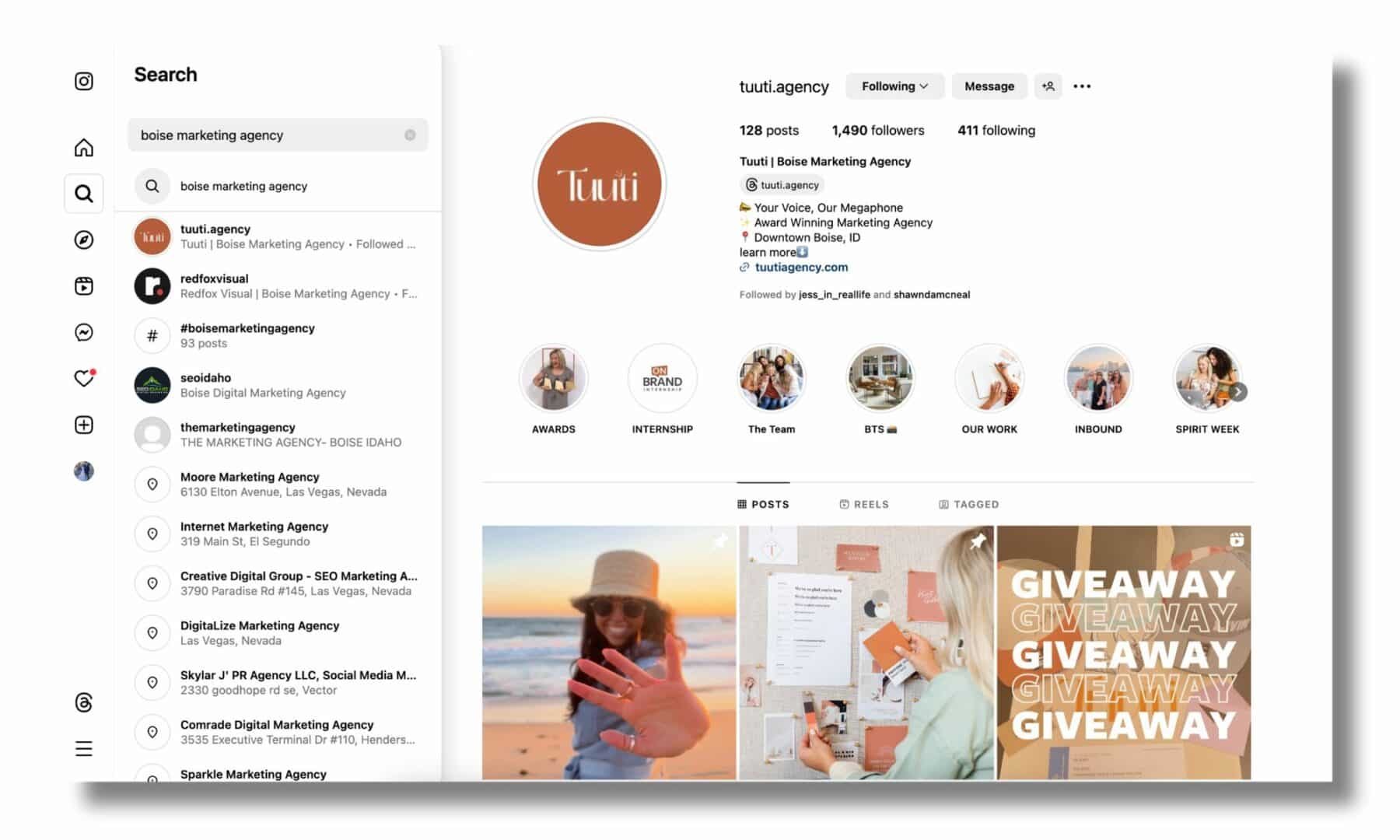How many times have you heard someone say “I found it on TikTok” or “I found it on Facebook” in the last few months? If you feel like people are finding more new brands, businesses, or products on social media than ever, you’re not wrong. Forbes and The New York Times both featured articles on the increasing trend of people making new discoveries through scrolling on their phones or computers.
As the internet landscape rapidly changes, it’s important for your brand to stay up-to-date on the most effective ways to reach your audience. We don’t have to tell you that social media is becoming increasingly important to the advertising and PR world. What you may not know is how social media is setting the scene for first impressions.
Social Media As a Search Engine
Using social media as a search engine isn’t a new thing, but it’s now the trending thing. TikTok and Instagram are increasingly taking the credit for where new discoveries are made. These social platforms offer new ways to engage with younger millennial and Gen Z demographics in particular. Recent reports state that 56% of Tiktok users discover new products or brands on the platform, while Instagram suggests that 83% of their users find new products and services on their app.
There are a few reasons why social media’s search engine abilities are gaining steam:
- It’s easy. The more convenient, the better. Using the search bar on an app you’re already on is much easier than switching to another app like Google.
- It’s short. Social media content is like a good headline — it’s engaging, short, and easy to digest. With an increasingly shorter attention span, social media is a great way for brands to get information to audiences without them losing interest. The more interesting, easy-to-access content you create, typically the more clicks.
- It’s visual. The wide variety of visual content also makes it easier for users to sift through the results and find what they’re looking for, rather than looking at a list of links.
Brands are also starting to pick up on social media’s opportunities for unfiltered (or less filtered) authenticity. When viewers see your brand’s personality on display, they’re more likely to engage with you and be interested in what you have to offer.
In many ways, social media also acts as a social resume for your company. Younger audiences especially want to make sure that their values align with the content and products that they consume. Users can see what accounts a brand follows, which can indicate social alignments they may use to discern whether your company is a good fit for them. Additionally, social media platforms provide an increased sense of transparency and new ways to validate a brand’s identity through direct links, comments, and reviews.
Consider that your audience might scan your account like they’re doing a background check. What does your social media presence say about you?
How to Use Social Media’s Search Engine to Your Advantage
All social media search engines operate similarly to Google in terms of search engine optimization, or SEO. However, social media requires a slightly different approach to ensuring a first impression. Rather than requiring a handful of keywords and a usable site, a social media post also needs attention to visuals, hashtags, captioning, closed captioning, and engagement.
It’s also important to consider the major way that social media platforms deviate from Google’s tried-and-true results algorithm. As any good SEO writer can tell you, Google will pull results based on rankings, which they judge on quality, reliability, and trust. Even though most of Google’s first results will be sponsored, you’ll usually find that they’re going to be reliable and functional.
Social media search engines use engagement-based ranking, meaning that your results are tailored towards what the algorithm thinks you’ll potentially “like” the most. This means what you see first may not be the most trusted source, but it will be what you’re most likely to find interesting. Because of their engagement-based ranking, you may need to take a different approach in optimizing your social accounts.
Lastly, you need to keep a close eye on how AI affects search engines for both social and SEO. Gradually, more and more platforms have included AI in the user experience. Both Google search and social media search incorporate AI to help you find answers to questions or content that matters to you. Which means as AI evolves, so must your strategy.
Fortunately, we can still rely on our trusted SEO system to help us rank higher than the heaps of content that may populate on a user’s results page. Here are some areas you should incorporate keywords into your social media:
- Your name: Your name and your username can both contribute to how likely users are to find your account.
- Your bio: A short, snappy bio with a few keywords can help the algorithm place you in search results.
- Your captions: Post captions can act as great places to put specific keywords that may not fit into your name or bio. These can be tailored to a specific post or genre of posts, which will increase the likelihood that your visuals will perform better under those terms when they’re searched.
- Video titles: Just like usernames and bios, video titles can be the difference between a top result and a bottom-of-page-three result. Ensure that your audience can find your content by incorporating a select few SEO keywords into your video titles.
- The text in your videos: Closed captioning and text in videos can not only help make your content more accessible, but it can also help the algorithm link the keywords and concepts to later searches by users.
- Bonus: TikTok’s search engine even takes into account the words you say in your video/audio; closed captioning can help make these interactions more meaningful to your engagement numbers!

Including all of these elements can help consumers find you when they use social as a search engine. In this example above, you can see that searching “Boise Marketing Agency” pops up our very own Tuuti Agency! We use keywords like “marketing agency” and “Boise, Idaho” that help clue in the social media algorithm.
Of course, there’s lots more that goes into your social ranking and engagement strategy! Check out our social post on the topic if you’re still curious about how SEO can be used in your social media content and marketing.
Don’t be afraid to test the waters and try out social media as a search engine for yourself. You might be surprised by how quick, effective, and engaging the social media landscape is. There’s always something new to discover on social media. With some strategic awareness, your brand can get discovered too!







